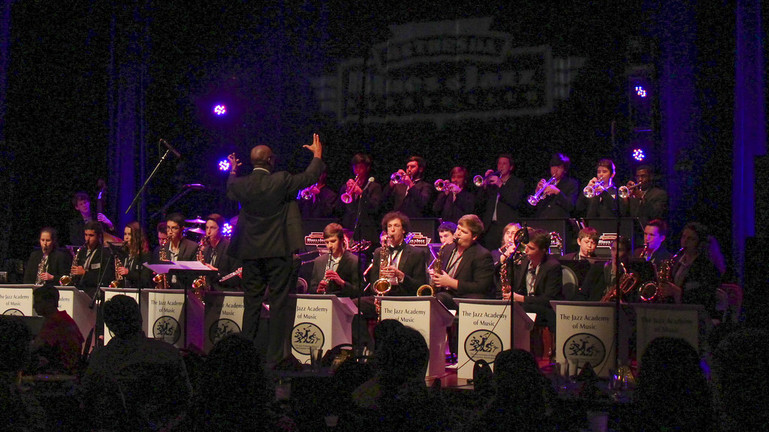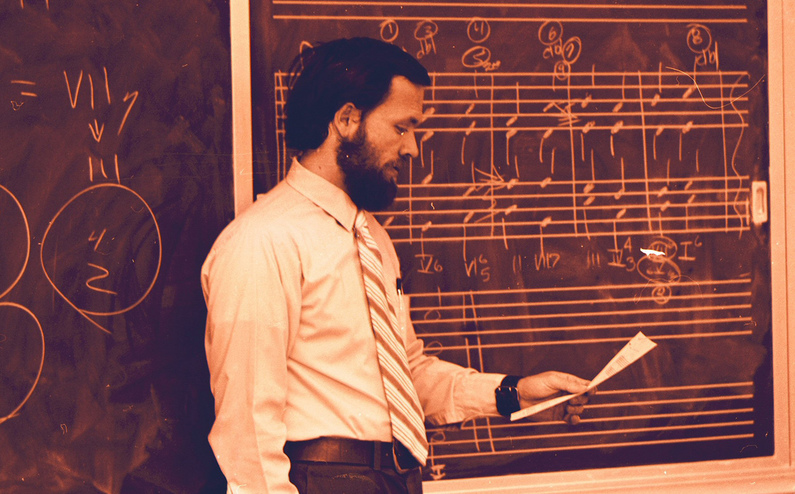 Most of us spend tens of thousands of dollars to go to college and when we spend that kind of money, we want to make sure that what we studied will help us go into the workforce. At least that’s what we’re made to believe growing up. There are some degrees, particularly in the arts, that serve a different purpose. The truth is a lot of funding is being cut in schools for music programs and our education system has shifted from pumping out talented artists to trying to keep the artful music alive. Let’s face it. A lot of what we hear on the radio today doesn’t come close to the sophistication that early composers like Beethoven, Mozart and Bach achieved with their concertos, sonatas and fugues. When’s the last time you went to a live concert where classic music was being played by an orchestra? There was a time where watching orchestras was our form of entertainment but in the advancement of technology, television and the internet those days are long gone. Yet a small pocket of us remain who still seek out live concerts and show our support to the art of making music. I have a story for you. It’s the year 2009 and the rhythm section of The Stetson University Jazz Ensemble are all standing in the green room huddled in the corner at the historic Athens Theatre in downtown DeLand. Other members of the ensemble are in different pockets of the backstage area warming up or grabbing a quick drink of water before a 2 hour set. We are getting ready for our end-of-the-year performance and right before we go up, Dr. George West, or “Doc” as we affectionately call him, gives us a small pep talk. He wasn’t one for pep talks particularly but his points were often poignant, concise and always with deeper meaning than the words themselves. So when Doc talked, we listened. He asks us “You know why they teach music in schools right?” We all look at him with glazed eyes fearing what sharp retort we’d have to endure if we gave him a wrong answer. Doc let the question sit in the air before answering. He then added “It’s so that you can appreciate it”. He then leaves us and makes his way upstairs to the wings. After sharing our opinions on the meaning of Doc’s words we go to the wings of the theater to await our announcement to share music we’ve practiced all year to a crowd eagerly waiting to hear arrangements composed by Duke Ellington, Benny Goodman, Bill Evans and other jazz greats. Although I’m reserved, inside my initial reaction to Doc’s words are incredulity and anger. “I’m paying $45,000 a year to APPRECIATE music? Hell no. I’m going to make back every dollar I spent!” It wasn’t until years later, while sharing wings and talking about music one night with a friend however when I realized what Doc meant. As we drank our beers and tore into our chipotle bbq wings my friend was describing a presentation he had gone to years before. He had received a memo to meet in the concert hall at Stetson University where the late Bobby Adams, who was the concert band director at the time, had asked for certain members of the faculty and staff to sit on the stage for a presentation. He had several of the music faculty perform and would give statements about each piece of music. Every piece had a lesson, anecdote or deep philosophical meaning behind it and Dr. Adams would eloquently lecture to his audience until he arrived to the point of this unorthodox meetup. “Music is taught today so that the young people learning it will be the audience of tomorrow” he said. “Otherwise we will have no one going to the orchestra concerts, attending Ballets or Operas and this genre will simply die away”. Dr. Adams wanted people to know how hard it is to achieve the creation of really good music. He wanted people to understand the time and dedication and years of perseverance that it requires to achieve mastery and excellence and that most of the young people studying will never become professional musicians but that the experience they had in their education will engrain in them that classic art music is important. It was then that I realized Doc wasn’t being facetious or trying to goad us into a mad frenzy pre-performance. He was telling us “you’re the reason why our craft will survive and it’s up to you to keep it going whether you are performing it or whether you are paying to see it”. So there’s the light at the end of the tunnel. Hopefully while reading this you’re thinking to yourself Am I doing my part? Where do I fit in? Let me ask you something. When’s the last time you went to a live music performance or any live performance for that matter? Whether you’re in school looking to get credits for the semester or whether it’s enrolling your child into music lessons or if you’re kids have left the nest and it’s time for you to take up the mantle. Maybe you’re looking for new fresh date ideas with the husband or wife. There are so many ways to get involved in the arts these days because the internet has made it so easy. Support live music by SIMPLY ATTENDING: Most universities have free concerts throughout the year so if you’re on a budget it’s risk free. The big ones are usually at the end of the semester/year because they are basically the final exam for the students. The university website will also tell you when the concerts are so you can just set a date and commit to it. Not sure what you should listen to? Throw a dart at the screen of the concert section of the website! See where it lands. Just kidding about that last part by the way. But seriously it doesn’t matter. What’s important is that you pick a live performance to go to and then actually GO TO IT. A lot of these events aren’t heavily marketed and attended only by other students and faculty. But you can take advantage of this by getting a front row seat to listen to some great music played by very dedicated and talented young artists. Then if you enjoy it enough you can graduate to paid performances like your local symphony orchestra. Not a fan of the symphony orchestra? That’s ok, not everyone is. You can also Google Live music [insert your city here] and see what pops up. You’d be surprised how many results you’ll get for how many different genres of music. Happy hunting! ~Harry Did you find this information helpful? If so, subscribe to my newsletter to get more helpful info. and be the first to receive updates about promotions, performances and offers.
8 Comments
|
Harry L. RiosFounder of HarryLRios.com Archives
January 2020
|
Harry L. Rios.com

 RSS Feed
RSS Feed
